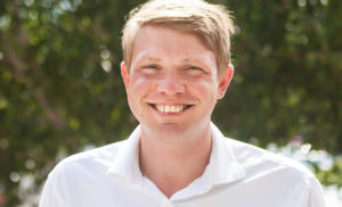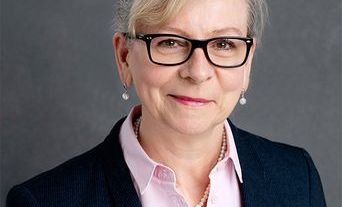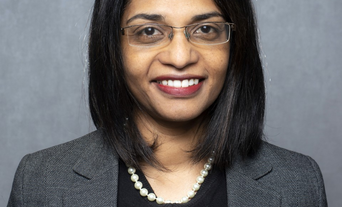Currently Professor of Pathology at Queen Mary University of London, Professor Martin explains in this profile the personal connection she has with her work on neurological illness as well as her efforts to increase the pathology workforce.
Background
I have a modest background, with a stimulating, happy family. I had a strong and capable mother and still have a lovely father. I have a great ‘little’ brother (6 foot 6 inches). My fabulous supportive husband Paul is non-medical and we have two (very tall) sons and a Goldendoodle (star of Nelson’s pathology week).
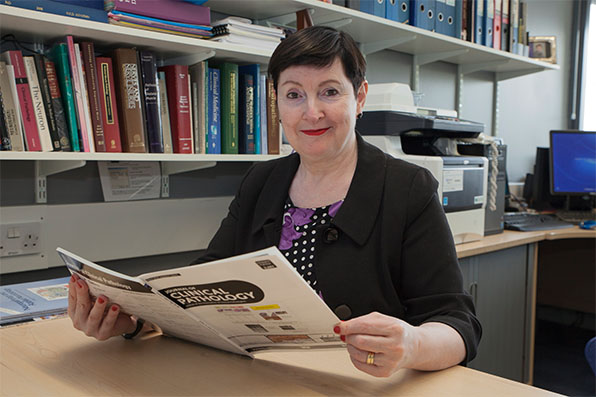
My primary school teacher (Miss Feliciant) told me to become a probation officer, but I always wanted to be a doctor. My education was supported by a county scholarship to the local girls’ school. I moved to Uppingham School for A levels for the science teaching (the girls’ school didn't have strength in science in those days), and I had a shot at Cambridge University for Medicine and got in. I am the first of my family to go to university.
I completed my clinical training at the London Hospital Medical College, did house jobs (last of the 120 hours per week one in two rotas!) and then moved to Guy’s and then St Thomas’ Hospitals. I returned to the London Hospital to train in pathology. I started on a clinical academic track with an MRC training fellowship. This was followed by a Wellcome fellowship working at King’s before becoming established at Queen Mary University of London.
Key achievements: advocacy, collaboration and training
I have worked together with colleagues in many other disciplines both in pathology and in other specialties and bodies, always with the aim of trying to make things better. I was National Clinical Director of Pathology for NHS England from 2013 to 2016 and President of the Royal College of Pathologists from 2017 to 2020. I am now National Specialty Advisor for Pathology for NHS England and Improvement, chairing the national Pathology Board and the national Pathology Workforce Board.
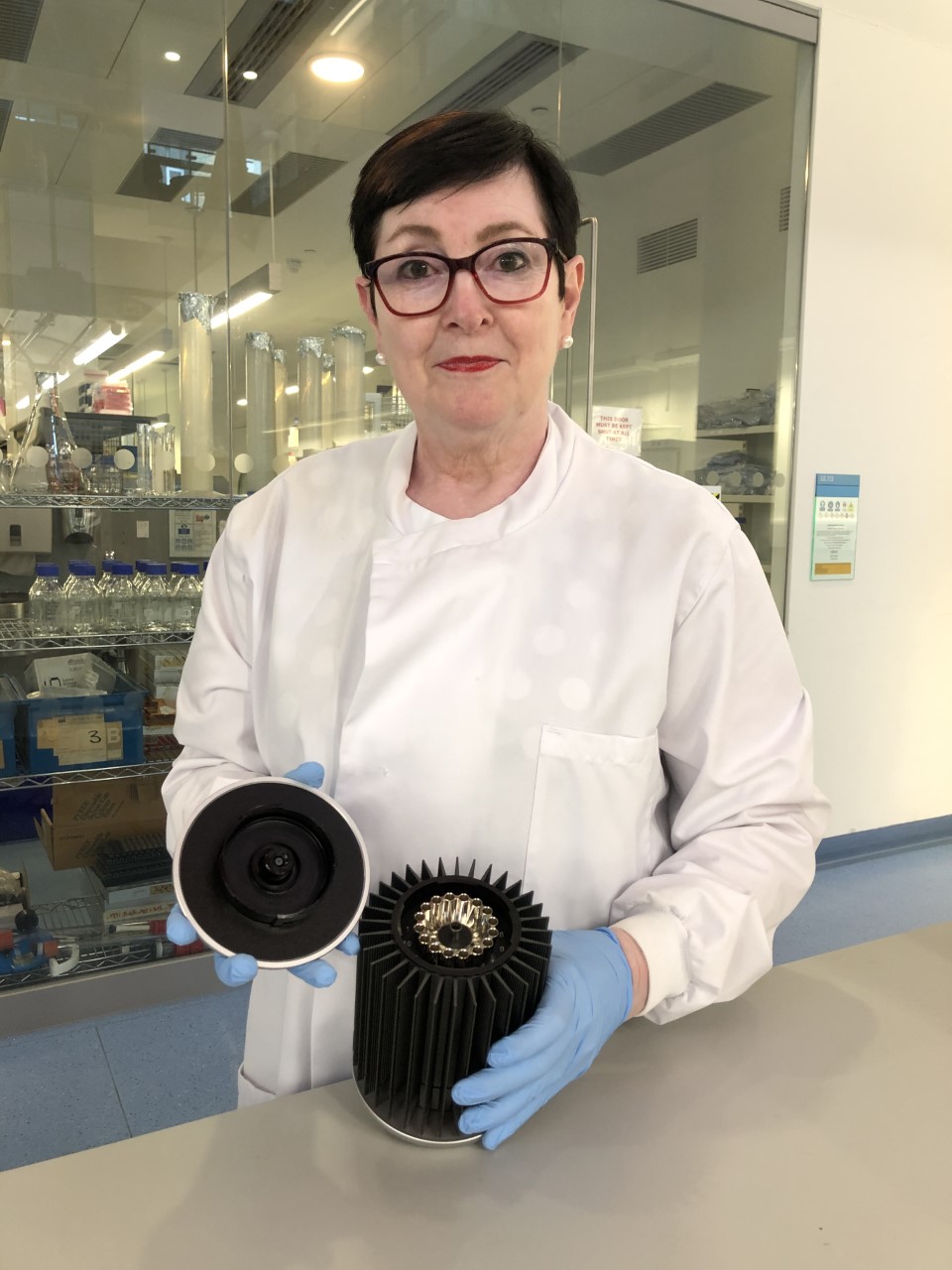
During my work as President, and in my current role, I am proud that we have made a difference to the investment in workforce in pathology and seen a real increase in training post numbers across many of our disciplines. In addition, the acceleration in investment in laboratory information management systems and digital pathology is something that while not ‘glamourous’ is so desperately needed and which is happening. I am particularly pleased to see the positives come out of all the advocacy, and I will continue to push for more.
I have been privileged to lead for the profession during the pandemic and ensuing incidents related to global and national pressures. I am constantly astonished at how brilliant my colleagues are and how much they have achieved.
I have been privileged to lead for the profession during the pandemic and ensuing incidents related to global and national pressures. I am constantly astonished at how brilliant my colleagues are and how much they have achieved. In my clinical role, I have always worked with tremendous histopathologists, who have been inspirational, but working in the heat of the pandemic so closely with so many colleagues from virology, infection, immunology and public health, and all the other clinical areas, has been a joy and a wonder. Being part of groups of experts coming together to get the best possible advice in difficult circumstances has made me very proud of our work.
On a different tack, I have always enjoyed teaching and learning (I love to learn too!). I developed and lead the Pathology Portal project, an innovative multimillion-pound adaptive learning programme for RCPath and Health Education England, working with Pathology Alliance partners and a range of other colleagues. I like to make learning easy and accessible, and I have designed and developed an award-winning eCPD app. The app has delivered over 50,000 modules free of charge to healthcare staff, including thousands of pathology staff.
I have a long connection with the Motor Neurone Disease Association (my PhD was in the cellular pathology of motor neurone disease), and have worked on the Research Advisory Board, most recently as chair. My grandmother died of motor neurone disease and a friend has it, so their work is close to my heart.
One of the other things that I never expected to do was to work as a volunteer vaccinator and medical cover for vaccination, which I have done since the beginning of the COVID-19 vaccine programme. After lots of e-learning and practical training, I was good to go and seeing the local community come together was amazing.
My clinical work brings me great satisfaction. I work in such a specialised area – neuromuscular disease of the gut – that new entities are not unusual. I enjoy being able to identify significant changes that can help patients understand their symptoms a little better.
The major challenge is having the time to do the great research and innovation that helps us develop scientifically and in diagnostics. Having time to learn, to think, to improve patient pathways and to carry out key safety work is something we all desperately need.
Key challenges: workforce and resources
There are short-term challenges and longer-term ones. Some are well known – the global healthcare workforce has been amazing, but we are tired, and there is a global shortage of pathologists. Everything we can do to support people will be needed.
Pathology, as with all areas of healthcare, will continue to be challenged for resources, both in terms of staff and equipment. In this setting, I think the major challenge is having the time to do the great research and innovation that helps us develop scientifically and in diagnostics. Having time to learn, to think, to improve patient pathways and to carry out key safety work is something we all desperately need.
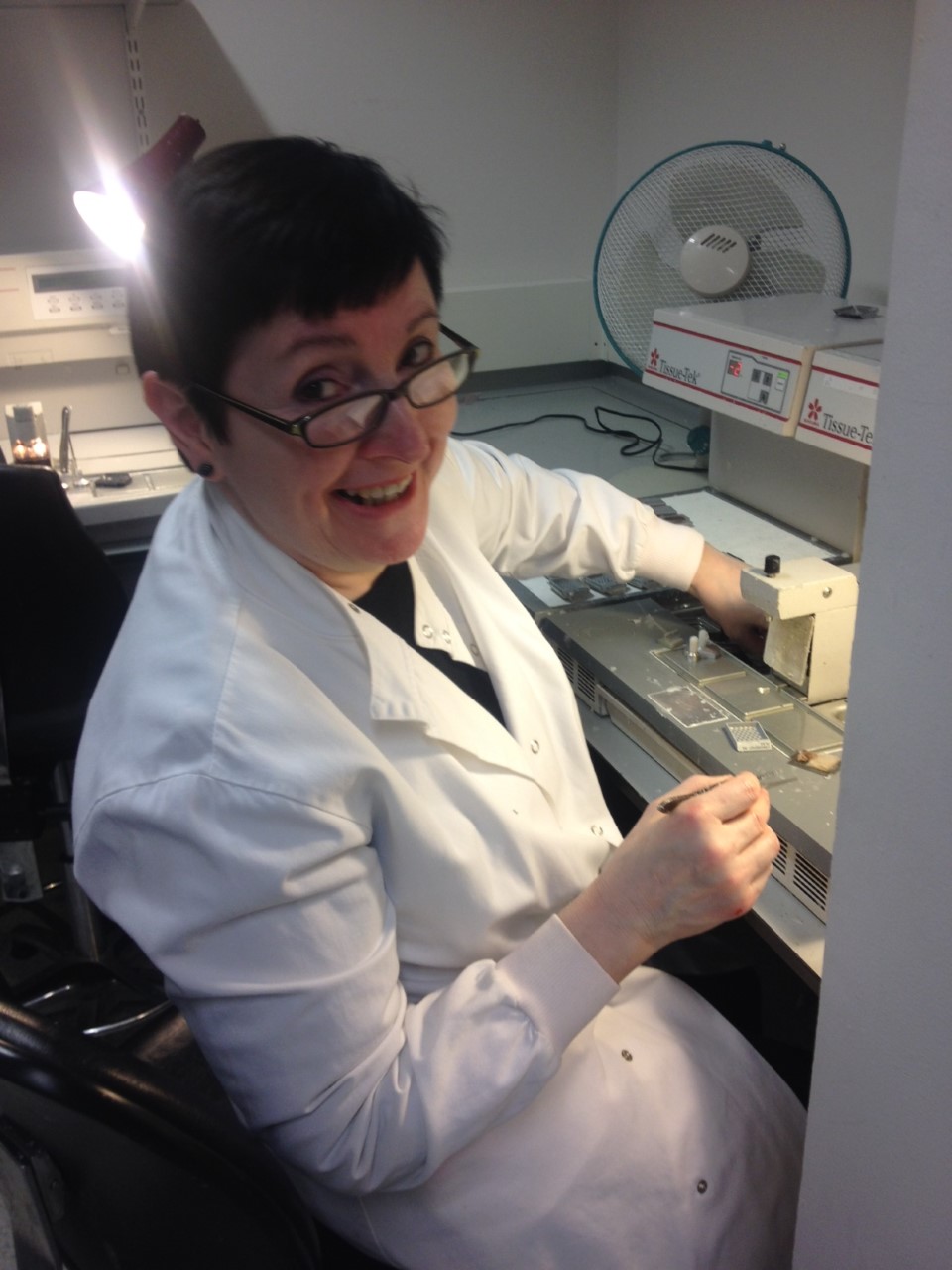
Trainees and careers in pathology
All areas in pathology are fabulous, working with just the most brilliant people. Pathology is a family, and intellectually offers so much breadth and depth. You will be spoilt for choice but, whichever pathology discipline you end up in, you will never regret it! I would say to all trainees: come and meet us!
Maintaining a work–life balance
Have fun and be positive. Walk a lot and keep active, mentally and physically. Keep up with friends and family. Cook!
Final thoughts
I would like to say a massive thank you to all those I have worked with and continue to work with. I learn such a lot from you and with you. The support you give each other and our pathology community is amazing, and so very much appreciated!


